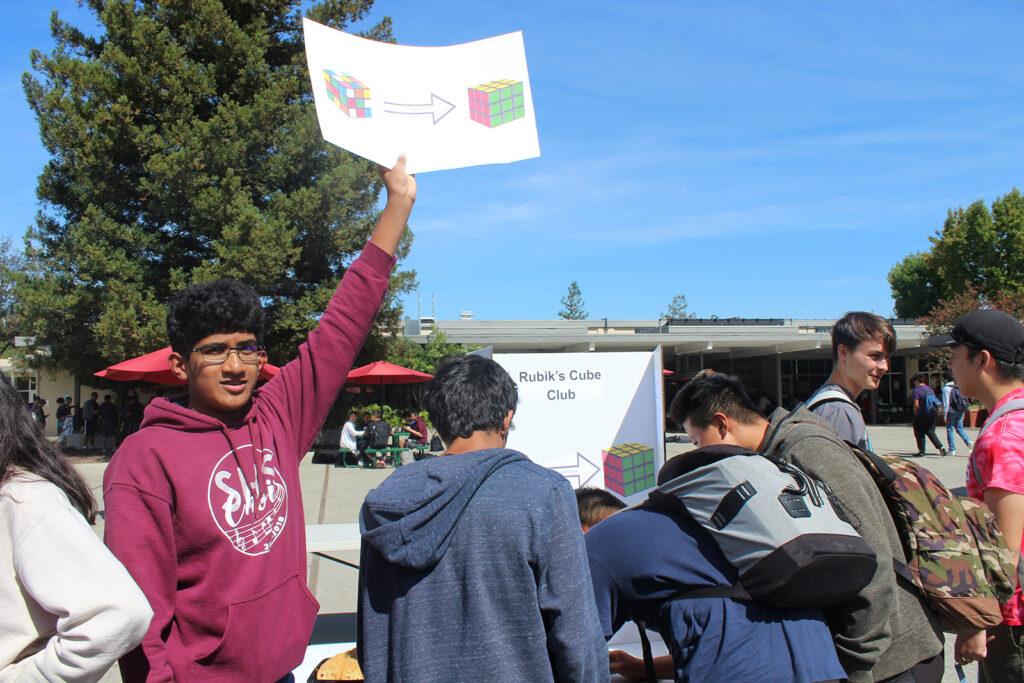As the lunch bell rang on Sept. 3, students dashed into the quad, where a sprawling maze of booths and posters were set up for the first day of Club Fair. Various club officers shouted indiscernible words at passersby as bowls of skittles and other treats lay lavishly on tables, enticing students to sign up and expand their passions.
During Club Fair, hundreds of students signed up for groups ranging from Science Bowl to volunteering clubs like the Leo Club.
The first day of Club Fair featured academic clubs while the second day showcased service, arts and cultural clubs. Many clubs reported successful recruitments during the event.
“It's a really great resource for attracting attention to our clubs, helping us recruit new members and getting the word out that we exist,” said senior Bradley Hsu, the Science Olympiad Club president.
Not only did larger, more established clubs attend, but many smaller, inexperienced clubs also showed their presence at Club Fair to gain more members. Sophomore Tri-M Music Honors Society Club secretary Marcus Kuo said that they had gained more than 70 members during Club Fair, and have spread awareness about what they stand for.
“We are really excited about the year ahead, as we have always wanted to appeal to a large variety of music genres, not only classical, and with more instrumentation and people we can now achieve the goal,” Kuo said.
This year, fewer clubs have been made official because of the stricter policy that was implemented at the start of the year, which eliminated many that didn’t reach the minimum number of attendees at each meeting. Reports on club activities are required every other month to enforce club guidelines that have been overlooked in the past.
In order to maintain transparency with the reports, club advisers, namely teachers, will be expected to write these reports. Meetings must be attended by a minimum of 12 members, excluding officers, and be attended by the majority of officers. Additionally, a brief summary describing what happened at each meeting must be completed each month, so ASB can get a grasp on future goals of the club.
Because the school is being accredited this year during WASC, a process done every six years, the club commissioners have decided to implement these rules for a smoother process when visitors come.
“Ultimately, we just want clubs to be on top of their game,” said senior Prosper Chiu, the clubs commissioner. “These reports every other month shouldn’t be much of a hassle if clubs were already following prior instructions, and promoting their interests.”
Despite Chiu’s claims that the rules were not as strict, a noticeable decline in club applications forms say otherwise. The only new club added this year is the Bullet Journal Club, which focuses on keeping students organized through planners and calendars.
On the other hand, academic clubs that have been around for a long time, like Science Olympiad, seem to have found the transition to the new system nearly seamless.
“Real clubs should be able to get around the new restrictions really easily — they just require that people actually attend meetings, and documentation that proves that people are attending meetings, which is ultimately just a small nuisance, ” Hsu said.
But to smaller clubs, meeting the minimum number of attendees could turn out to be a problem, unless they step up their game.
“We were a little uneasy about the club policies this year, so our officers decided to not only appeal to orchestra students but also to band and choir,” Kuo said. “Ultimately, everything worked out, and we are happy that we met the requirements.































